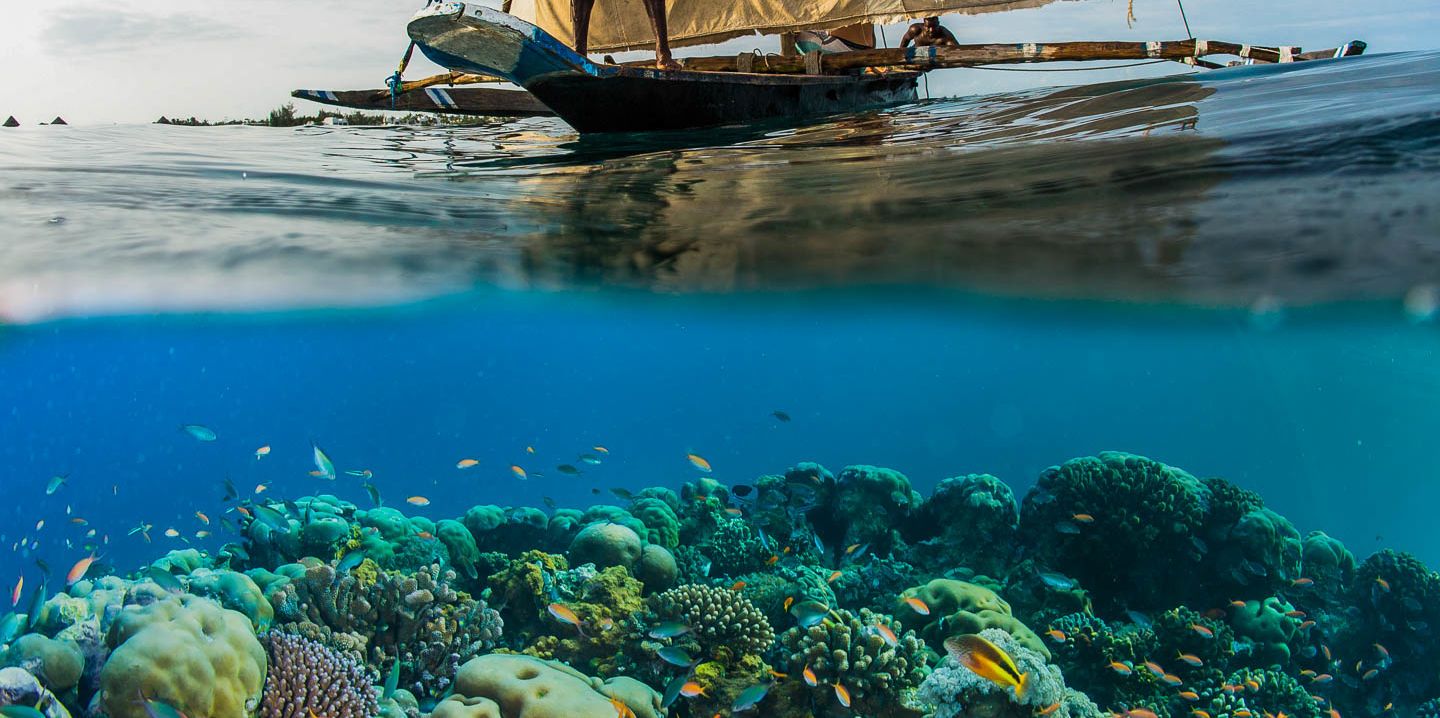Swahili Divers & Gecko Nature Lodge
We have different activities for everyone. It is a divers paradise and a nature lovers retreat. Birdwatchers are always welcome and we can arrange day tours to the Ngezi Forest to see the famous Pemba Scops owl. Kayak the mangroves or snorkel. Relax with a book from our library in our hammocks or hire a bicycle and tour the village on your own.
water based activities
Scuba diving
Freediving
Snorkeling
Cruising
Deep sea fishing
Kayaking The Mangroves
Kayak fishing
Wind and Kite surfing (Expert Only) With Own Gear
Deep Sea, and Kayak fishing
The Pemba Channel is known world wide for the abundance of Tuna, Wahoo, Dorado, Sailfish, Giant Trevali, King Fish, Rainbow Runners, Groupers, Red Snappers, and especially the monster bill fishes that prowl the 1200 m deep rich waters. Fishing is best from October to March, come and try catching the fish of a life time. We offer Kayak Fishing around the gaps and Mangroves, or offshore trolling, casting, or bottom fishing based on the season, and your preference.
Scuba Diving, FreeDiving and Snorkeling
The Waters around Pemba Island offer some of the word’s best virgin unspoiled coral reefs, teaming with sea creatures from the common Snappers, and Groupers to the more challenging to find Leaf Fish, Frog Fish, Nudibranches. These wonders can be explored by either Scuba Diving, Free Diving or just snorkeling. At night the nocturnal creatures appear and the Bioluminescence turns the waters into a burst of stars. Our 40 plus sites cater for all levels of divers experience, from beginner to highly advanced. we offer wall, drift, shallow, deep, and Deco dives. All our dives are from boat, and within 30 min boat ride.
land based activities
Ngezi Forest Tours
Bicycling
Forest walks and Coconut crab tours
Sunset cruise and island Tours
Ngezi Forest Tours
Explore the last part of the Ngezi Rain Forest, a true rare Gem, with its own micro environment, where the indigenous and unique Mpapindi Palm can be found alongside with several hundred year old trees that tower over 50 m high cutting all sunlight from reaching the forest floor. Orchids, and mushrooms, wild fruits and berries, Huge Birdnest Ferns, vervet monkeys, Pemba flying foxes, Pemba Green Pigeon, Pemba Whiteite, Pemba Scops Owls are all found here along with many migratory birds, as well as the Pemba Bush Babies, that laugh at all people.
Endangered Coconut Crab Tours
Those land based crabs can weigh in at over 4.5 kg and normally come out of their borough at dust. They are known for climbing a coconut tree, cutting the coconut off, and spending up to 3 days with a specialized pincer making their way through the husk to the succulent juice and meat inside the nut. Although omnivore they are hunted by the local communities close to extinction. With our efforts and your contributions, we are working closely with the communities to save the indigenous specie and ensure the continuity of the race.
Vumbawimbi Beach
The longest beach on Pemba, over 4 km of pure white sand bordering the Ngezi forest, set inside a calm bay. Come enjoy walking in the soft sand, wading in the warm shallow waters, find a getaway place with your special partner and share a glass of bubbly or a romantic afternoon.
Lighthouse Tour
Climb to the highest point in North Pemba and take in the breathtaking views of the sandbanks at low tide, the turquoise waters beyond, and the Ngezi Forest. During September through November, it is an ideal place to lookout for Humpback Whales coming through the area to calve and feed.
Markets, Ruins and Spices tour
Take a full day to tour Pemba, from the markets of Wete and Chake Chake, to the oldest ruins of East Africa, not forgetting the Kidike Flying Fox sanctuary, the Spice Farms, or the essential oils distillery.

























